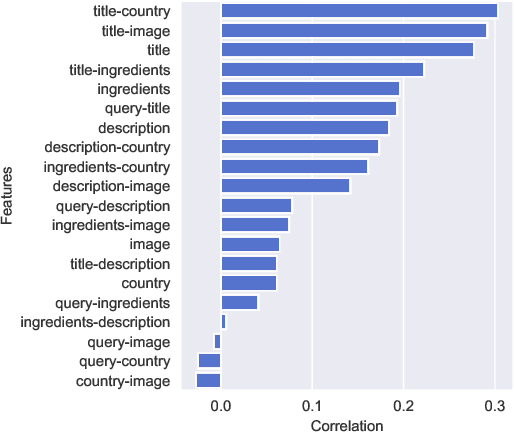Multi-Field Models in Neural Recipe Ranking -- An Early Exploratory Study
Paper and Code
May 12, 2021



Explicitly modelling field interactions and correlations in complex documents structures has recently gained popularity in neural document embedding and retrieval tasks. Although this requires the specification of bespoke task-dependent models, encouraging empirical results are beginning to emerge. We present the first in-depth analyses of non-linear multi-field interaction (NL-MFI) ranking in the cooking domain in this work. Our results show that field-weighted factorisation machines models provide a statistically significant improvement over baselines in recipe retrieval tasks. Additionally, we show that sparsely capturing subsets of field interactions offers advantages over exhaustive alternatives. Although field-interaction aware models are more elaborate from an architectural basis, they are often more data-efficient in optimisation and are better suited for explainability due to mirrored document and model factorisation.
 Add to Chrome
Add to Chrome Add to Firefox
Add to Firefox Add to Edge
Add to Edge